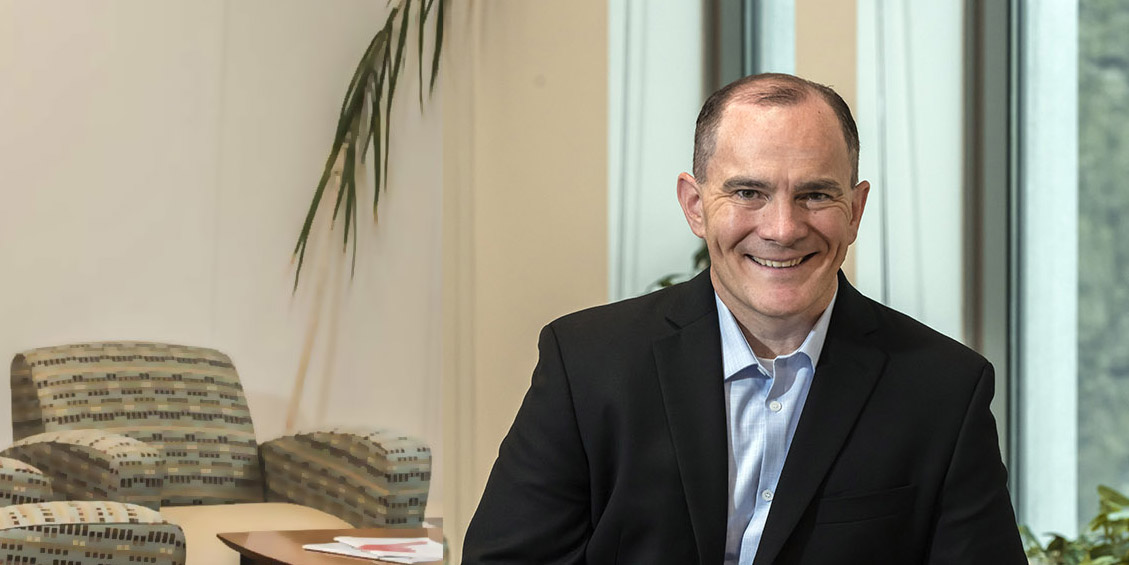Photo by Lee Pellegrini
Connell School of Nursing Professor and Associate Dean for Research Christopher Lee provided an overview of his innovative approach to the study of chronic illness—what he calls “biobehavioral profiling”—before an audience of prominent science and health care professionals at a recent event held at the National Institutes of Health.
A cardiovascular nurse scientist, Lee uses biobehavioral profiling to look at patterns in clinical characteristics to help identify subgroups of patients who have different experiences and could potentially benefit from different therapies.
“A lot of the science focuses on persons with heart failure, for example. But there’s no one-size-fits-all intervention. Not everyone’s experience is the same,” said Lee in an interview after the lecture. “We are getting much more precise about the way we think about chronic illness, the way [patients] experience it, and then potentially what we can do to make [patients’] lives better living with it.”
Lee gave his lecture, “Integrative Biobehavioral Research in Heart Failure,” as part of the prestigious National Institute of Nursing Research Director’s Lecture Series, which brings the nation’s top nurse scientists to the NIH campus in Bethesda, Md., where they present their work to an interdisciplinary audience consisting of NIH intramural scientists, leaders of other NIH institutes, grant program officers, physicians, nurses, and other clinicians.
“I was honored and humbled to be asked to give this NINR Director’s Series talk,” said Lee, a fellow of the American Academy of Nursing, American Heart Association, and the Heart Failure Society of America. “It’s a wonderful opportunity to bring some attention to the Connell School of Nursing. There are many people at the school who are generating great science and practicing and leading great interdisciplinary research. I was very honored to do this on behalf of the school.”
Lee’s talk focused on his program of research on chronic illness, which has three dimensions: self-management, symptom science, and dyadic science. Self-management involves what people living with chronic conditions can do to improve their own outcomes, from diet and exercise to medication compliance and responding to signs of change more quickly. Symptom science is the connection between things that can be measured about the human body and the experience of living with the condition. Often, according to Lee, there is a disconnect between the biological measures and how the patient actually feels.
Dyadic science looks at the management of chronic illness within a family context, whether it’s a couple or older adult with an adult child.
Lee and Connell School Associate Professor Karen Lyons have generated the Theory of Dyadic Illness Management. In an article published last year in the Journal of Family Nursing, Lee and Lyons contend that illness management is a dyadic, interdependent phenomenon and said clinicians should optimize the health of both members of the dyad. The patient and care partner should be seen as a unit and their appraisal of the illness, their behaviors to manage the illness, and their health are all interconnected.
The emergence of the critical part played by care partners in treating people with chronic conditions is a significant change in perspective, according to Lee.
“I am a nurse and the way I was trained was very patient-focused, to take care of people individually. Our health care system is set up to focus on the one person who is there with a compliant or illness.”
But he said there is “growing awareness that we have to consider the health of the person living with the illness and the health of the care partner equally.”
Lee also took the opportunity during his lecture to highlight the work of four trainees. He said that generated a lot of interest and questions from the audience on what makes a good scientific mentor.
“To mentor somebody well, you have to be mentored to do it,” said Lee. “I’m someone who benefitted tremendously from interdisciplinary mentoring. But mentoring is a learned process, a skill set that has to be developed.”
--Kathleen Sullivan, University Communications | January 2019




